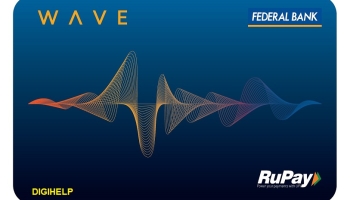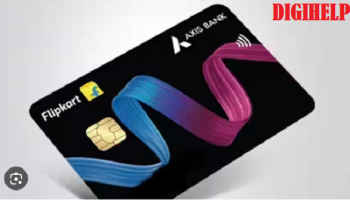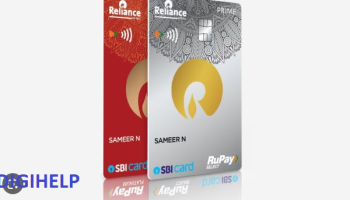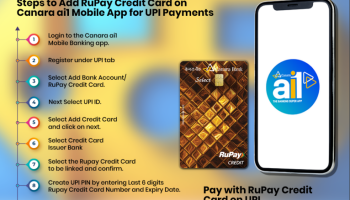The Reserve Bank of India (RBI) has introduced the new rules for issuance of debit and credit cards with introduction of penalties for banks for issuing or upgrading cards of customers without prior consent. RBI has also emphasized on capitalization of charges and penalties to the principal and collecting interest on that. As per new rules, now NBFCs, UCB and other entities with Networth of Rs 100 Crore and above can issue the Credit Cards alone or in association with any other institutions.
The Major Highlights of the New Credit Card Rules :
- Losses due to unsolicited cards shall be the responsibility of the issuer.
- Customers may approach to RBI Ombudsman if they receive any Unsolicited Cards.
- There should not be any capitalization of Penalties, Charges for compounding of interest.
- In case of Unsolicited Credit Card Issuance, the card-issuer shall not only reverse the charges forthwith, but also pay a penalty without demur to the recipient amounting to twice the value of the charges reversed.
- Card-issuers shall seek One Time Password (OTP) based consent from the cardholder for activating a credit card, if the same has not been activated by the customer for more than 30 days from the date of issuance. If no consent is received for activating the card, card-issuers shall close the credit card account without any cost to the customer within seven working days from date of seeking confirmation from the customer.
- Banks have also been forbidden from sharing any information with credit information companies prior to activation of the card. Any credit information relating to such inactivated credit cards already reported to credit information companies shall be withdrawn immediately.
- Card-issuer’s representatives can contact customers only between 10 am and 7 pm.
- Banks have to honor request for closure of a credit cards, immediately notifying the customer of the closure through email, SMS, etc.
- Customers have to be given multiple channels such as helpline, dedicated email-id, Interactive Voice Response (IVR), prominently visible link on the website, internet banking, mobile-app or any other mode to close their cards and cannot insist on any channel.
- Failure on the part of the card-issuers to complete the process of closure within seven working days shall result in a penalty of Rs 500 per day of delay payable to the customer, till the closure of the account provided there is no outstanding in the account.
- If a credit card has not been used for a period of more than one year, the process to close the card shall be initiated after intimating the cardholder.
- All these rules will be effective from 01st July 2022.
Credit Card Issuance by Urban cooperative banks (UCBs) with minimum networth of Rs 100 crore and a core banking solution in place can also issue credit cards after RBI approval. NBFCs will require special RBI permission to issue credit, debit or charge cards virtually or physically with a minimum net owned fund of Rs 100 crore.
Also Know – Cheapest Credit Card to Bank Transfer Charges
The RBI singled out unsolicited issue or upgradation of cards for the first time putting the onus on banks for any liabilities arising from such issuances. In case, an unsolicited card is issued/existing card upgraded and activated without the explicit consent of the recipient and the latter is billed for the same, the card-issuer shall not only reverse the charges forthwith, but also pay a penalty without demur to the recipient amounting to twice the value of the charges reversed.
In addition, the person in whose name the card is issued can also approach the RBI Ombudsman who would determine the amount of compensation payable by the card-issuer to the recipient of the unsolicited card as per the provisions of the Ombudsman Scheme, i.e., for loss of complainant’s time, expenses incurred, harassment and mental anguish suffered by him/her, RBI said. The central bank has emphasized that any loss arising out of misuse of such unsolicited cards shall be the responsibility of the card-issuer only and the person in whose name the card has been issued shall not be held responsible for the same.
Customers have to be given multiple channels such as helpline, dedicated email-id, Interactive Voice Response (IVR), prominently visible link on the website, internet banking, mobile-app or any other mode to close their cards and cannot insist on any channel. Failure on the part of the card-issuers to complete the process of closure within seven working days shall result in a penalty of Rs 500 per day of delay payable to the customer, till the closure of the account provided there is no outstanding in the account. If a credit card has not been used for a period of more than one year, the process to close the card shall be initiated after intimating the cardholder. If no reply is received from the cardholder within a period of 30 days, the card account shall be closed by the card-issuer, subject to payment of all dues by the cardholder, RBI said. Subsequent to closure of credit card account, any credit balance available in credit card accounts shall be transferred to the cardholder’s bank account.






